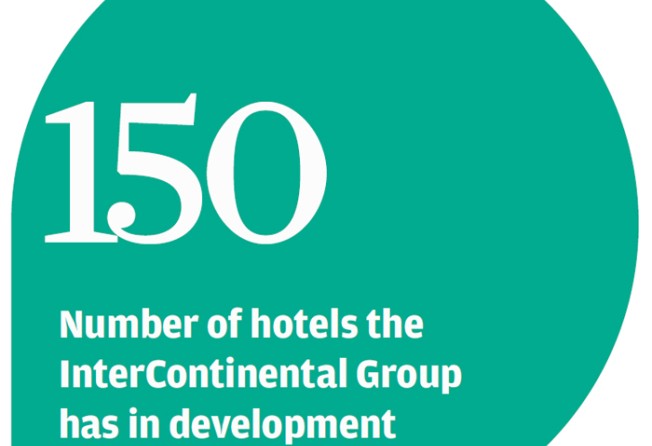
China's hotel business 'is booming'
China's economy may be slowing, but demand in smaller third-tier towns is thriving, say global chains rushing to corner the market

International hotel groups are still expanding in the mainland, despite slower economic growth both nationally and globally, but shifting their focus from major coastal cities to mid-sized cities in the interior.

"We have 150 hotels in development in China today, or about 15,000 rooms. Sixty per cent of the new hotels are in tier three cities because that is where the future is going to be," IHG Greater China chief executive Keith Barr said.
"Today, nearly 30 per cent of IHG openings are in China. Almost one in three hotels we now have around the world are opening up in China."
By 2025, China would become a world leader in terms of the number of hotels in the country, said Barr.
The Hualuxe Hotel brand opened by IHG earlier this year has been tailored to the tastes of Chinese travellers. The hotels have no traditional western bars, and instead feature contemporary tea houses, that also serve alcoholic beverages.
Ten management contracts had been signed to operate hotels under the new brand and another 20 were being negotiated, said Barr. The first Hualuxe Hotel should open by the end of next year, if not the middle of 2014.
Also on the expansion trail, property consultants Knight Frank says, are Accor Hotels, which plans to add 25 under its Pullman brand in China to its existing portfolio of 14 hotels by 2015. Club Méditerranée plans to open five new resorts on the mainland by 2015.
Shangri-La Asia, an early entrant in the mainland hotel industry, in April announced the extension of the Shangri-La hotel in Dalian , the coastal garden city in Liaoning province in the northeast region of the mainland. The luxury hotel now features 563 deluxe guest rooms with 195 serviced apartments.
There are plans to construct a new 40-storey tower north of the existing hotel by 2015. It will house an additional 110 guest rooms and 82 serviced apartments.
Hoteliers said oversupply would not become a challenge to their investment plans.
While the supply-demand equation may become unbalances in certain cities at certain times, strong fundamental demand would sustain the industry for the long-term, said Barr.
"Even though many more hotels are due to open, there is enough demand to support them," he said.
US-based Wyndham Hotel Group, the world's largest hotel company with more than 7,170 hotels offering about 608,300 rooms in 66 countries, is also bullish about its business in the mainland.
"I don't see any reason as to why we should slow down [our expansion]. I do believe we will actually accelerate," Frank Trampert, the group's managing director for the Asia-Pacific region, said.
Trampert said the economic slowdown had dampened mainly the industrial and manufacturing sector in the mainland.
As the country continued to develop, creating a growing middle class, there was increased investment in infrastructure, such as airports and railway systems, while the hospitality sector enjoyed the support of the mainland government, he said.
"So how can you not be bullish?" Trampert asked.
Wyndham Group's president and chief executive, Eric Danziger, noted that the mainland's hotel industry began by offering only six-star hotels and no-star hotels, leaving room to expand in the three and four-star sector in medium-sized and smaller cities.
"We believe three and four-star products are what the Chinese consumers want, need, and can pay for," he said.
As at the end of June, Wyndham Hotel Group had 541 properties in the Asia-Pacific. On the mainland, it has 470 hotels with 59,588 rooms under five different brands. It also has two Ramada hotels in Hong Kong and hopes to set up more in the city.
About 40 per cent of the hotels in its global pipeline are in the Asia-Pacific region, of which about 70 per cent are on the mainland, Danziger pointed out.